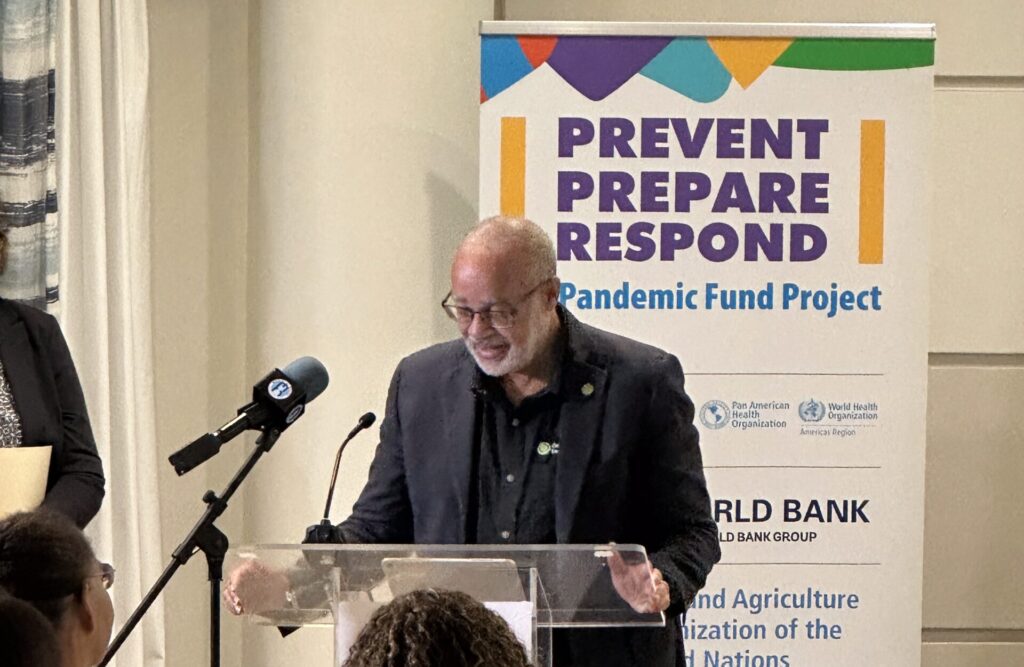The Eastern Caribbean has taken a major step forward in bolstering its defences against future pandemics with the official launch of the Pandemic Fund in Saint Lucia. This initiative aims to enhance the region’s preparedness, prevention and response capabilities in the face of emerging health threats, building on lessons learned from the COVID-19 pandemic.
Launched globally in 2022, the Pandemic Fund was established in response to the devastating impact of COVID-19 to help countries improve their surveillance systems, laboratory capacity and health workforce. In 2024, six Eastern Caribbean countries – Antigua and Barbuda, Dominica, Grenada, St Kitts and Nevis, Saint Lucia and St Vincent and the Grenadines received funding through a multi-country proposal entitled “Strengthening Prevention, Preparedness and Response to Emerging Health Threats in the Eastern Caribbean.”

The proposal was submitted by the Pan American Health Organisation/World Health Organisation (PAHO/WHO), the Food and Agriculture Organisation (FAO), and the World Bank on behalf of the independent Member States of the Organisation of Eastern Caribbean States (OECS).
At the launch event on Wednesday at the Harbour Club, Dr Didacus Jules, director general of the OECS, emphasised the importance of the fund and the shift it represents for small island developing states.
“We are gathered here, not merely to commemorate a funding milestone, but to signal a decisive shift in how we as small island developing states intend to manage the risk of pandemics, not in panic, but in preparation; not in fear, but in foresight,” Jules said.
He reflected on the lasting impact of COVID-19, calling it a “generational rupture” that revealed critical weaknesses in public health systems and underscored the interconnectedness of economies and societies. He acknowledged the immense strain on the Eastern Caribbean, which had to stretch its limited resources to protect both lives and livelihoods.
“Resilience cannot be built in knowledge. It must be nurtured in readiness,” he said.
Jules highlighted that for the OECS, the Pandemic Fund is more than a financial resource: it is a symbol of long-term commitment to health security.
“It is a beacon of multilateralism and collective will. For the OECS, the fund is catalytic,” he said. “It comes at a time when we are consciously redesigning our development architecture to be future-ready.”
He noted that over 70 per cent of emerging infectious diseases originate in animals, linking them to agricultural practices, food systems, land use, and climate change. This is exemplified by the “deeply strategic” move to include health and agriculture ministries in the project.
Jules praised the regional and global partnerships that made the multi-country proposal possible, especially the collaboration among PAHO/WHO, FAO and the World Bank.
“This is the kind of partnership that has become our default setting, not just for pandemics, but for all the complex, transboundary challenges that we face,” he affirmed.
Looking forward, he urged all stakeholders to ensure that the fund leads to long-lasting infrastructure, not just temporary fixes.
“Let us use this opportunity to put in place fundamentals that last; robust surveillance networks, a trained and retained health workforce, and laboratory systems that meet international standards,” he said.



